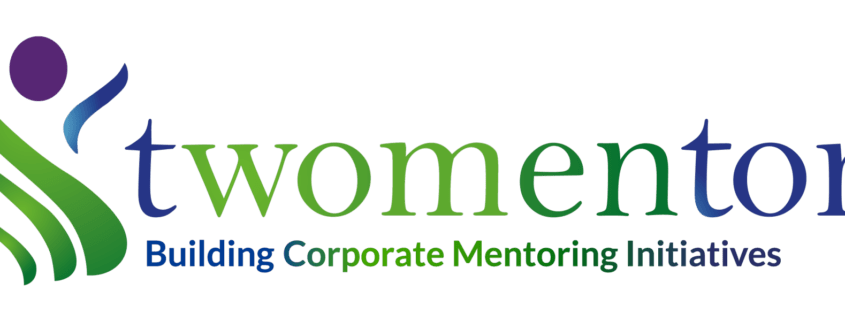Mentoring & Your Employees’ Mental Health: What Companies Can Do

The percentage of full-time US workers who are dealing with mental health concerns has dramatically increased in recent years. According to the World Health Organisation, stress and depression account for over 12 billion lost working days annually. The mental health epidemic is now stated to impact 1:2 individuals globally
The surprising significance a mental health mentorship program can play in promoting employee well-being is something that more employers are starting to understand.
Mentoring programs are a powerful tool for supporting and promoting the good mental health of employees, yet most programs are touching an absolute fraction of the workforce and do not fit a ‘one size fits all model.’
In this blog post, we will focus on the specific ways mentorship programs could benefit the workforce by minimizing difficulties with mental health, anxiety, and isolation.
We will look at how mentoring might be beneficial and what businesses can do proactively with a little strategy, engineering, and heart.
Benefits of Mentoring for Reducing Isolation and Promoting Mental Health

Courtesy of PixaBay
In 2022, Donald H. Taylor’s L&D Social Sentiment Survey revealed that mentoring has risen to #4 among the preferred learning and development strategies for L&D teams, up from #6 in 2021. This is the largest increase in rank compared to other strategies on the list.
The pandemic caused a 30% surge in mentoring initiatives at organizations, with approximately 56% to 71% of companies now utilizing mentoring to some extent, as per DDI and LHH.
Workers are feeling increasingly anxious due to a fundamental shift in their perception of work caused by the pandemic. People are reevaluating the significance of work in connection to their overall life goals and are choosing to change jobs accordingly. Companies are recognizing the importance of mentoring to address employee retention and engagement challenges (Cook, 2023 & MentorCLIQ).
Employees face a variety of difficulties in today’s fast-paced and frequently excluding workplace, which can be detrimental to their mental health. Workplace mentoring programs, though, are a bright spot.
Let’s explore how mentorship can significantly lessen isolation and improve everyone’s mental health at work.

Courtesy of Pixabay
Emotional Support and Connection – Mentoring fosters a strong emotional bond between mentors and mentees, reducing loneliness and isolation. At TwoMentor, we have been recommending more peer-mentoring models to clients where everyone has something to offer and learns from each other. A mentor-buddy model we love.
Building a Supportive But Smaller NetworkS – Mentees have access to a helpful network within the company through mentoring ties. A strong support system helps foster a sense of community and lessens the isolation some workers may feel. Smaller meetings will also drive more productivity and feelings of ‘ownership’ in decision-making.
Recognizing the Limitation of Zoom and TEAMS calls: People want to be part of something and add value. Sitting on the outskirts of Zoom and MS Teams calls had prompted a planned disengagement in the workplace which isn’t healthy. I.e . how many of us are multi-tasking, placing Amazon orders, reading texts, and leaving calls a bit lower in energy? Mentoring facilitates a 1:1 or 1:3 connection tripling engagement.
Skill Development and Empowerment – Mentoring boosts personal growth and skills. As mentees gain knowledge and abilities, their self-confidence and self-esteem rise, positively impacting mental health and reducing workplace loneliness. Feeling like someone out there cares about your professional and personal success is the foundation of meaning and psychological safety.
Coping Strategies and Resilience – Mentors offer valuable advice and coping strategies by sharing their own experiences of overcoming challenges. This builds resilience and helps mentees handle stress and adversity better, mitigating the adverse effects of isolation on their mental health.
What Companies Can Do?
Bottom Line: Employee mental health is essential for productivity and satisfaction with work in today’s demanding workplace. As shared, companies are becoming more aware of how mentoring programs may improve well-being, lower stress, improve psychological safety, and foster a sense of community.
Here are specific actions that companies may take to set up efficient mentoring programs and give employee welfare priority in a workplace that is rapidly changing:
1] Establish a Structured Mentoring Programs With High Touch Implementation and Holistic Components
Create world-class mentoring programs within the organization that pair growth-minded employees who both seek and have to offer guidance and support. A structured mentoring program ensures that mentees have a dedicated mentor to turn to for emotional support and guidance. For a smaller workforce, we recommend some flash mentoring sessions and industry association affiliations.
2] Provide Wellbeing Training and Exposure for Mentor Community to Know How to Best Help Each Other
Offer training on mental health awareness (like mental health first aid), and wellbeing and support a mentor community, equipping them with the skills to recognize signs of distress, provide empathetic listening, and offer appropriate resources or referrals when needed.
3] Allocate Time and Support from Top on 1:1 Relationship Building Mentor-Mentee + Sponsor Relationships
Promote the development of strong and trusting 1:1 relationships between mentors and mentees (or sponsor-proteges). Regular check-ins and feedback sessions can ensure that the mentoring relationship is mutually beneficial and supportive. Most mentor programs fail when people don’t sync up in the first 2-3 weeks after being matched and when people are not coordinated on scheduling sessions.
4] Encourage Open Communication
Create a culture of open communication within the organization where employees feel comfortable discussing their mental health concerns with their mentors (minor) and HR or outside consultant, EAP (major). Encouraging honest and non-judgmental discussions can help reduce the stigma around mental health and foster a supportive work environment.
5] Provide Access to Mental Health Resources
Complement the benefits of mentoring with access to professional mental health services. Offer counseling services, employee assistance programs (EAP), and mental health workshops to ensure employees have comprehensive support when needed. By personally sharing and mentoring others on the benefits of the EAP program at a past company I worked at, three others utilized it and got inexpensive therapy– a win! (Mentors- remember, you are not therapists, but you can be a source of information on how to get access through the company to resources under employee benefits).
Implementing these actions demonstrates the company’s commitment to employee well-being and fosters a supportive work environment that promotes mental health and overall employee satisfaction. To fast-track TRUST + human connection, we also are BIG fans of well-orchestrated Flash Mentoring opportunities.
HERE TO HELP Julie Silard Kantor has spent 30 years in workforce development and served in leadership roles to build a more diverse, engaged workplace. She and her team custom-build + manage mentoring 2.0 initiatives to drive employee engagement, and retention, and support M&A integrations. She can be reached at Julie@twomentor.com or www.linkedin.com/in/juliekantor



